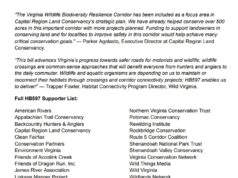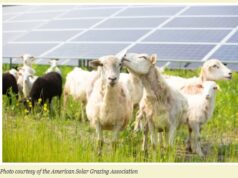Nice work by Virginia AG Mark Herring, fighting back against fossil fools Donald Trump’s and Scott Pruitt’s vicious, insane assault on the environment.
|
HERRING FILES OFFICIAL COMMENTS DEFENDING THE CLEAN POWER PLAN
~ Official comments on proposed repeal of CPP state that Trump’s plan is “unsupported, arbitrary, and capricious, and contrary to the law” ~ |
| RICHMOND(April 27, 2018)-Attorney General Mark R. Herring has filed official public comments opposing the Trump administration’s plan to repeal the Clean Power Plan, the most promising national plan to reduce air pollution and mitigate the effects of climate change. Herring and a 27-member coalition of states, counties, and cities state that the “unlawful and unsupported” repeal plan would have a significant negative impact on communities like Hampton Roads that are uniquely vulnerable to the effects of climate change and sea level rise.
“Virginia is already confronting the effects of climate change and sea level rise, particularly in Hampton Roads, which faces the prospect of billions in spending on infrastructure and coastal resiliency measures in the coming decades,” said Attorney General Herring. “To turn our back on the most promising plan to mitigate climate change and sea level rise is foolish, and to do it in this way is unlawful. We will continue to defend the Clean Power Plan and the economic, environmental, and health benefits of cleaner air and water, because the cost of inaction is just too high.” In their comments, Attorney General Herring and his fellow filers state that the EPA’s repeal proposal is “unsupported by the facts or law,” not only ignoring the Clean Power Plan’s increasingly compelling scientific underpinnings, but also the EPA’s obligations to regulate power plant emissions under the federal Clean Air Act. The coalition also charges that EPA’s newly revised analysis of the economic impacts of the Clean Power Plan is error-filled, and amounts to “a thinly-veiled attempt to provide factual support for its predetermined conclusion to repeal the [Plan].” The coalition compares the Trump administration’s approach to “a horse with blinders (if not a blindfold)” that “completely ignores the dire threat climate change poses.” Specifically, the coalition challenges the proposed repeal of the Clean Power Plan on a number of fronts, including that:
States, counties, and cities are on the front lines of climate change. The coalition submitted with its comments an appendix highlighting the threats they are facing. For example, among the harms that Virginia faces from increasing climate change are:
The CPP, which was developed over several years with an unprecedented amount of input from states, cities, nonprofits, the business community, and the public, calls for a 32% national reduction in carbon pollution from power plants by 2030, including a 32% reduction in the Commonwealth’s carbon output by 2030, roughly the same reduction the Virginia Department of Environmental Quality says Virginia achieved between 2007 and 2012. Power plants are responsible for about one third of the country’s carbon pollution, making them the single largest source in the country. Implementing these reductions will make a lasting impact by removing the carbon equivalent of approximately 166 million cars. In addition to Attorney General Herring, comments were filed by the Attorneys General of California, Connecticut, Delaware, Hawaii, Illinois, Iowa, Maine, Maryland, Massachusetts, Minnesota, New Mexico, New York, North Carolina, Oregon, Pennsylvania, Rhode Island, Vermont, Washington, and the District of Columbia, and the chief legal officers of the cities of Boulder (Colorado), Chicago, Los Angeles, New York, Philadelphia, and South Miami (Florida), and the county of Broward (Florida). According to the Yale University Project on Climate Change Communication, 64% of Virginians believe climate change is happening and half believe that it is mostly caused by human activity. More than half believe that climate change will harm people in the United States, 76% support regulating carbon dioxide as a pollutant, and 66% support limits on carbon dioxide emissions from existing power plants as proposed in the CPP. |




![[UPDATED 1/29/26] Audio: Sen. Tim Kaine Talks to Blue Virginia About His “Five-Point Plan” to Fight Trump’s Orban-Like Assault on US Democracy; Civil Disobedience a la MLK Jr.; Trump’s Bogus “Energy Emergency”; the Crucial Importance of the 2025 VA Elections; etc.](https://bluevirginia.us/wp-content/uploads/2025/02/kaineinterview2-238x178.jpg)







